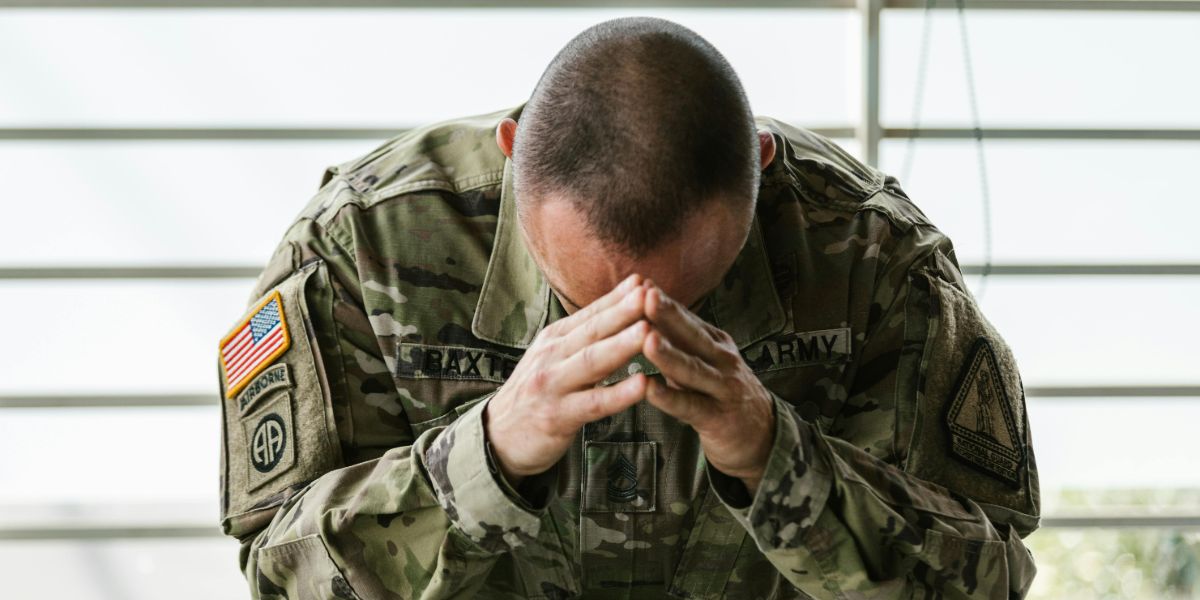What Are the Key Components of Therapy in Addiction Recovery?
Therapy in addiction recovery is essential not only for addressing the behavioral symptoms of addiction but also for uncovering and healing the emotional and psychological wounds that fuel substance use. At Carrara, the therapeutic journey begins after a medically supervised detox has cleared your body of harmful substances and your mind is no longer clouded by compulsive cravings. Only then are you truly ready to begin the deeper work of recovery: therapy.
This stage is where transformation truly begins. Therapy serves to educate you about addiction and relapse, but it also provides a safe, supportive space for you to explore past trauma, identify negative thought patterns, and reframe the story you’ve been telling yourself. Engaging in individual therapy can be a profound step toward understanding your own motivations, triggers, and behaviors. Each session is a chance to dig deeper into yourself and develop the tools needed for long-term sobriety.
Our therapists create an emotionally secure and nonjudgmental environment where you are free to be vulnerable, honest, and real. With their guidance, you’ll build trust, shift self-perception, and develop personalized strategies to prevent relapse. This foundational work is what allows recovery to take root and endure beyond your stay at Carrara.
What Types of Therapy Are Used in Addiction Recovery?
At Carrara, we utilize a blend of evidence-based therapies and holistic healing modalities, all tailored to the unique psychological, emotional, and behavioral needs of each client. Our goal is to ensure that therapy is not only clinically effective but also deeply personal and impactful.
- Cognitive Behavioral Therapy (CBT): Helps individuals identify and reframe negative thought patterns and emotional triggers that lead to substance use. CBT empowers clients with coping tools to manage stress and reduce relapse risk.
- Dialectical Behavior Therapy (DBT): Focuses on four core skills—mindfulness, emotion regulation, distress tolerance, and interpersonal effectiveness—to help reduce self-destructive behaviors and promote emotional balance.
- Somatic Trauma Therapy (STT): Many clients carry trauma deep in their bodies. STT helps release that stored trauma through a mind-body approach, improving emotional regulation and reducing compulsive behavior driven by unresolved pain.
- Motivational Enhancement Therapy (MET): Increases internal motivation by helping clients explore ambivalence about recovery and build confidence in their ability to change.
- Creativity-Based and Experiential Therapies: Through art, music, animal-assisted therapy, and nature-based adventures, clients tap into non-verbal healing channels, reconnecting with joy and meaning outside of substance use.
- Holistic Therapies: Yoga, acupuncture, sound baths, reiki, and mindfulness practices are used to promote physical relaxation, emotional stability, and spiritual grounding.
- Small-Group Therapy: Our group therapy model is intimate and capped at six participants, allowing for deep connection, mutual support, and shared healing without the overwhelm of large group settings.
Every client at Carrara receives a customized blend of these therapies, delivered with compassion and clinical expertise to meet their evolving needs at each stage of recovery.
How Does Social and Family Support Influence Addiction Recovery?
Recovery is not something anyone should face alone. Social and family support is one of the most powerful predictors of lasting sobriety. Whether it’s encouragement from loved ones, empathy from peers, or professional guidance from therapists, these connections form a safety net that can catch you when you’re most vulnerable. The stronger the network, the more resilient your recovery.
At Carrara, we emphasize the importance of including family in the healing process. Many people battling addiction feel isolated, ashamed, or misunderstood. Family therapy helps bridge the emotional gap by fostering honest conversations, rebuilding trust, and teaching all parties how to move forward with empathy and boundaries. Engaging in family therapy not only supports your healing but also mends the relationships that matter most.
- Emotional Support: Loved ones offer encouragement, understanding, and the reassurance that you’re not alone—even when things feel overwhelming.
- Accountability: Families can serve as gentle accountability partners, reinforcing healthy habits and helping to spot signs of relapse early.
- Healing Past Conflicts: Addiction often creates deep emotional wounds in families. Family therapy allows everyone to share, listen, and rebuild together in a safe space.
- Building Stronger Foundations: When families understand the nature of addiction and the science behind recovery, they can become powerful allies in your long-term success.
One of the greatest motivators for individuals in recovery is realizing how much their healing positively affects those they love. When you rebuild your family relationships, you reinforce your reason to stay clean and create a network that keeps you grounded in moments of temptation.
What Are the Benefits of Different Therapy Settings in Addiction Recovery?
Carrara provides therapy in both private one-on-one sessions and small group settings, each offering distinct benefits. Whether you’re unpacking trauma with your therapist or finding strength in peer support, these therapy environments work together to foster deeper healing and lasting transformation.
Group Therapy: Sharing, Belonging, and Mutual Growth
In Carrara’s small, intimate group therapy sessions—never more than six participants—you’ll find a safe and supportive space to share your story and listen to others. The sense of community that develops helps dissolve the isolation so many people experience during active addiction. By opening up in group therapy, you build confidence, discover empathy, and realize that you are not alone in your struggle.
- Emotional Connection: Hear others’ experiences, find comfort in shared challenges, and build relationships rooted in trust.
- Non-Judgmental Environment: You’re not defined by your past here. You’ll be surrounded by others who understand what you’ve been through and support your recovery goals.
- Healing Through Empathy: As you listen to others’ journeys, you gain insights into your own. Group work helps foster compassion, personal reflection, and the capacity to forgive yourself and others.
Individual Therapy: A Safe Space for Deep Healing
Individual therapy sessions at Carrara are held in the privacy of your personal suite, creating an atmosphere of total safety and discretion. This is your time to dig deep, speak freely, and explore the trauma or emotional wounds that may be fueling your addiction. Your therapist is more than a professional—they are your guide, your sounding board, and your partner in healing.
- Trauma-Focused Insight: In one-on-one sessions, you’ll explore the roots of your addictive behavior—often buried beneath layers of pain or unprocessed trauma.
- Trust and Consistency: You’ll work with the same therapist throughout your stay, building a relationship grounded in trust. Sessions happen three times per week—or more if needed—to ensure you’re fully supported.
- Confidentiality and Safety: Carrara therapists abide by HIPAA and strict confidentiality protocols, allowing you to speak freely without fear of judgment or exposure.
- Personalized Growth: No two journeys are the same. Your therapist will tailor each session to your evolving needs, helping you gain clarity, resilience, and emotional strength.
How Do Co-Occurring Disorders Affect Addiction Recovery?
For many people struggling with addiction, there’s more beneath the surface than substance use alone. Mental health issues like depression, anxiety, PTSD, bipolar disorder, or unresolved trauma often fuel and perpetuate the cycle of addiction. These are known as co-occurring disorders, and at Carrara, we treat them with the same level of care and attention as the addiction itself.
Our clinical team begins by performing a thorough psychological and medical evaluation during your intake and detox process. This is where we uncover any underlying mental health issues that may be driving substance use. According to the National Survey on Drug Use and Health, 37% of people with Alcohol Use Disorder (AUD) and 53% of those with Substance Use Disorder (SUD) have a co-occurring mental health condition. Left unaddressed, these issues can silently sabotage your progress—even after physical detox is complete.
That’s why we don’t just stop at getting you clean. We work to treat the root cause of your need to use. Our therapists use integrated treatment strategies that address the way your mind processes trauma, responds to stress, and manages emotional pain. When you understand the “why” behind your addiction, you gain the power to change your relationship with it.
- Depression and Anxiety: Often linked with early trauma or prolonged emotional stress, these conditions can act as gateways to substance misuse.
- Post-Traumatic Stress Disorder (PTSD): For many, addiction begins as an attempt to numb overwhelming memories or flashbacks.
- Bipolar Disorder: Mood instability can push individuals toward substances as a form of emotional self-regulation.
- Psychotic Spectrum Disorders: Require highly tailored therapeutic interventions to manage symptoms alongside recovery work.
By addressing both your psychological health and substance use simultaneously, Carrara provides a path to recovery that is not just lasting—but transformative. You’ll leave not only detoxed but empowered with insight, resilience, and emotional clarity.
What Role Does Aftercare Play in Preventing Relapse?
Recovery doesn’t end when you leave the Carrara facility—it evolves. The transition back to everyday life brings new challenges, emotional triggers, and unexpected stressors. That’s where aftercare comes in. At Carrara, we build a personalized aftercare plan that supports you long after you complete your residential treatment, helping you stay grounded, focused, and connected as you re-enter your world.
Bespoke Aftercare Planning
No two people walk the same recovery path. Carrara’s aftercare plans are designed around your unique needs, including flexible therapy options, alumni events, and lifestyle guidance. Whether you’re facing emotional turbulence or re-integration challenges, we equip you with the tools to cope—before the stress becomes overwhelming.
Personalized Case Management
Your case manager is your go-to advocate during and after treatment. They ensure your needs are met, help coordinate outpatient therapy, and make adjustments to your plan as needed. You’ll never feel like just another number—we walk with you every step of the way.
Leaning on Support Groups in Addiction Recovery
Sometimes, just knowing someone else has been where you are can make all the difference. Carrara’s addiction support groups and alumni network provide you with a space to share victories, setbacks, and everything in between. These groups offer encouragement, accountability, and insight from those who understand the journey firsthand.
Stay in Touch with Alumni Programs
Our relationship doesn’t end at discharge. Carrara’s alumni program offers continued connection through recovery events, peer mentorship, and shared milestones. You’ll be part of a supportive community that celebrates your growth and helps you stay the course—even when life gets tough.
Relapse isn’t a sign of failure—it’s a risk we plan for. With Carrara’s aftercare system, you’ll never have to face it alone.
What Makes Carrara Rehab Stand Out?
At Carrara, we redefine what rehab can be. Nestled in the tranquil hills of Malibu and overlooking the Pacific, our luxury treatment centers blend clinical excellence with the comforts of a high-end wellness retreat. But it’s not just about luxury—it’s about healing in an environment that honors your dignity, privacy, and personal journey.
Unlike institutional-style facilities or group-heavy programs, Carrara offers a boutique experience where every detail is intentionally designed around your needs. From private therapy sessions in your suite to personalized gourmet meals, every moment is crafted to restore not just your health—but your sense of self.
Many of our clients are high-performing professionals, public figures, or individuals who simply need a discreet, elevated setting to recover. Here, confidentiality isn’t an add-on—it’s built into our culture. Your healing stays yours.
What Are the Key Benefits of Choosing Carrara Rehab?
Choosing Carrara means choosing a recovery experience that is as nurturing as it is transformative. We don’t just treat symptoms—we care for the whole person. Here are some of the key features that set us apart:
- Ultra-Luxury Amenities: Enjoy spacious private rooms with ensuite bathrooms, chef-prepared meals, spa services, fitness centers, pools, and serene outdoor spaces that promote relaxation and renewal.
- Holistic Therapies: Go beyond traditional therapy with integrated practices such as cranial sacral therapy, sound baths, acupuncture, reiki, aromatherapy, yoga, and mindfulness-based stress reduction.
- Tailored Treatment Plans: Every recovery plan is built around your personal history, goals, and mental health needs—never one-size-fits-all.
- High Staff-to-Client Ratio: With fewer clients per therapist, we ensure that you receive one-on-one attention throughout your stay, from detox to discharge and beyond.
- Total Privacy and Discretion: Your confidentiality is protected with absolute care, whether you’re a high-profile client or someone seeking peace away from the public eye.
- Whole-Person Wellness: We focus on more than just addiction—we help you restore physical vitality, emotional stability, and a renewed sense of purpose in life.
Our mission isn’t just to help you get clean—it’s to help you rediscover the healthiest, strongest, most empowered version of yourself.
Ready for a Transformative Experience?
Your recovery journey doesn’t have to feel clinical or impersonal. At Carrara, it can feel like the beginning of a new life—one rooted in clarity, comfort, and confidence. With personalized care, luxurious surroundings, and proven clinical methods, we’re here to guide you toward lasting healing, inside and out.
Take the first step by speaking with our team. Whether you have questions about admissions, insurance, or treatment options, we’re ready to listen—and help.
- Streamlined Admission: Our admissions team will walk you through every step, making the process stress-free and tailored to your needs.
- Complete Aftercare Support: From day one, we plan for your success after discharge—so you’re never without support.
Take the first step toward a future free from addiction—one that reflects the life you deserve to live.
Britney Elyse has over 15 years experience in mental health and addiction treatment. Britney completed her undergraduate work at San Francisco State University and her M.A. in Clinical Psychology at Antioch University. Britney worked in the music industry for several years prior to discovering her calling as a therapist. Britney’s background in music management, gave her first hand experience working with musicians impacted by addiction. Britney specializes in treating trauma using Somatic Experiencing and evidence based practices. Britney’s work begins with forming a strong therapeutic alliance to gain trust and promote change. Britney has given many presentations on somatic therapy in the treatment setting to increase awareness and decrease the stigma of mental health issues. A few years ago, Britney moved into the role of Clinical Director and found her passion in supervising the clinical team. Britney’s unique approach to client care, allows us to access and heal, our most severe cases with compassion and love. Prior to join the Carrara team, Britney was the Clinical Director of a premier luxury treatment facility with 6 residential houses and an outpatient program




